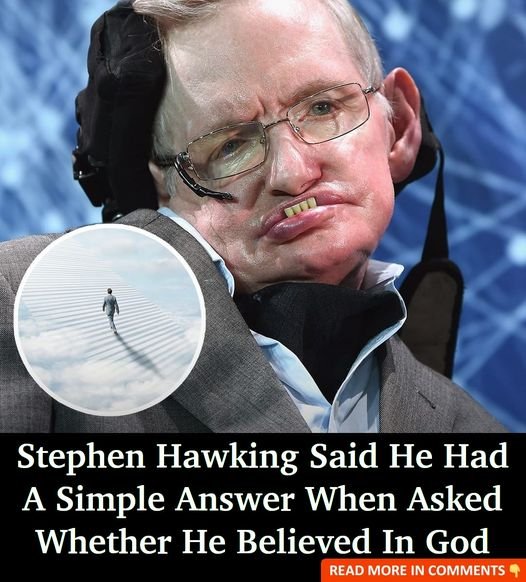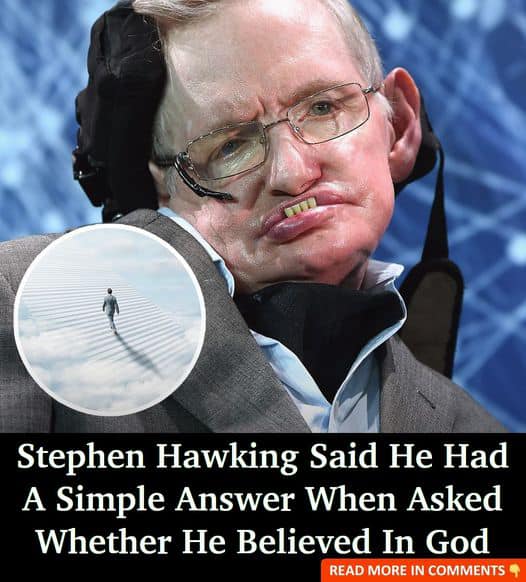Stephen Hawking shared his thoughts on the afterlife and religion before he passed away. As a brilliant theoretical physicist, people were naturally curious about his views on God and the afterlife. Through various interviews and writings, he provided his perspective on whether a higher power exists and the nature of life after death.

The Question of Belief
When asked about his belief in God, Hawking’s answer was straightforward. He said there was no evidence of a higher power and that the universe could be understood through the laws of science. In an interview with the Spanish newspaper El Mundo, he remarked, “Before we understand science, it is natural to believe that God created the universe. But now science offers a more convincing explanation.” His stance was not focused on any single religion; rather, he felt that all religions are based on faith without factual support. Essentially, Hawking identified as an atheist.
The Grand Design
In his book “The Grand Design,” co-written with Leonard Mlodinow, Hawking delved deeper into his beliefs about the origin of the universe. He argued that the laws of physics, rather than a divine creator, were responsible for the creation of the universe. He wrote, “Because there is a law such as gravity, the universe can and will create itself from nothing. Spontaneous creation is the reason there is something rather than nothing, why the universe exists, why we exist.”
No Afterlife
Hawking’s views on the afterlife were also grounded in scientific reasoning. He believed that the notion of an afterlife was simply wishful thinking. In his final book, “Brief Answers to the Big Questions,” he wrote, “No one created the universe and no one directs our fate. This leads me to a profound realization: there’s probably no Heaven and no afterlife, either… I think belief in an afterlife is just wishful thinking. There is no reliable evidence for it, and it flies in the face of everything we know in science.” Yet, he also acknowledged that everyone’s belief is personal. “We are each free to believe what we want and it’s my view that the simplest explanation is there is no God,” he explained.
Conclusion
Stephen Hawking’s views on God, religion, and the afterlife were shaped by his work as a mathematician and his commitment to understanding the universe through science. While his beliefs may not align with everyone else’s, his remarkable contributions to science will continue to inspire and be remembered.




